“life tip: whenever you’re doing formal writing and want to write ‘sus,’ replace it with ‘suspect’.”
– me
Surprisingly, the word “sus” was a thing before Among Us. Elon Musk tweeted it, and police used the term “sussed out” and there was a law called the Sus Law. In the online sphere, the first urban dictionary entry on sus described it as
“Short for ‘suspect’ or suspicious.’”
An article claims that this is the earliest urban dictionary definition, and it’s post 5 here, but I don’t know how to verify that it is the oldest.
Etymology
In 2022 though, it is primarily used as an abbreviation of suspicious instead of suspect. Personally, I think “sus” is more easily replaced with “suspect (adj)’ than suspicious, but whatever. This doesn’t really matter, as both “suspicious” and “suspect” come from the same root Latin word: suspicere.
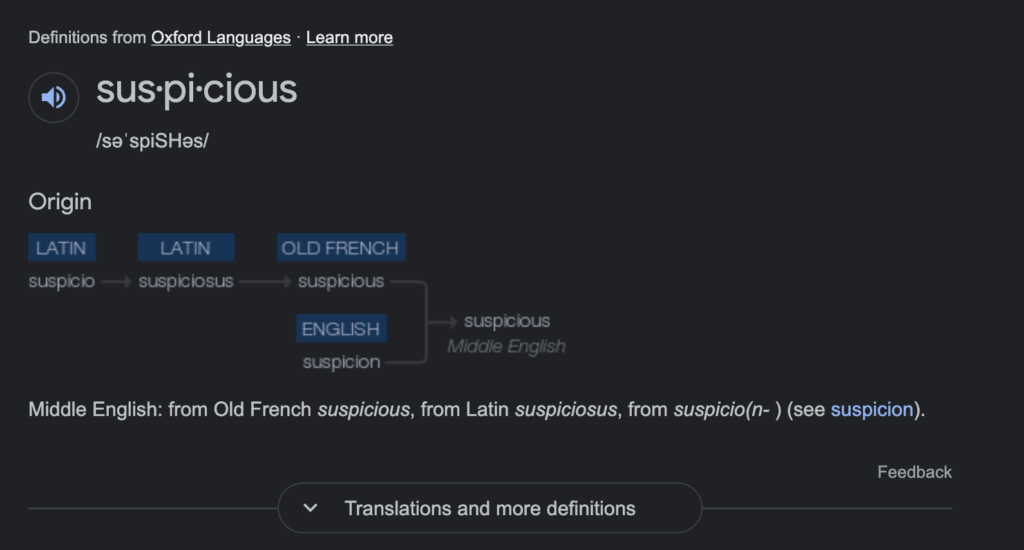
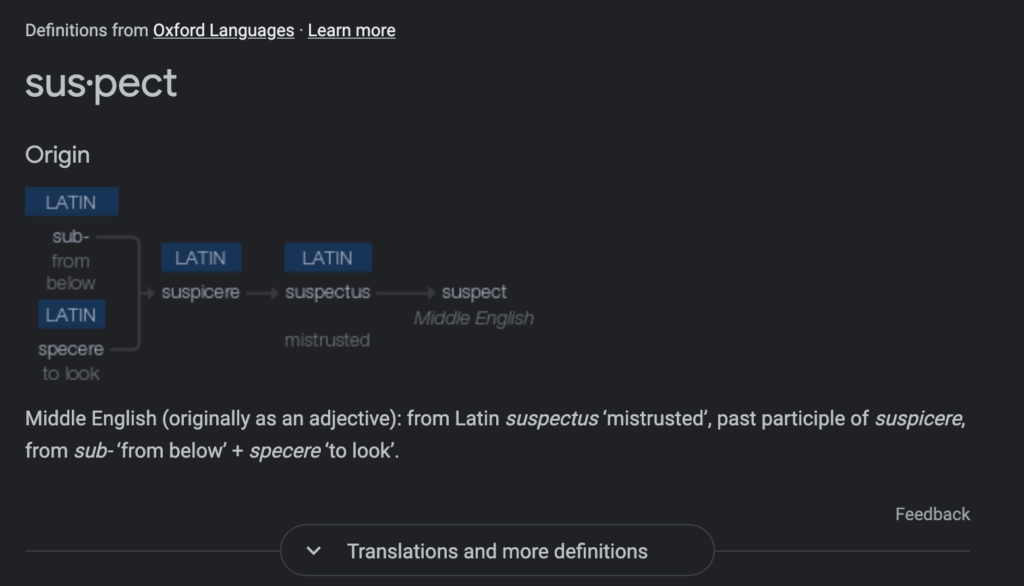
I for a while accidentally thought that they did not have the same etymology. To be fair, Google gives the etymology of suspicious as coming from “suspicio” and I haven’t taken Latin since middle school so how was I supposed to know that this was a conjugation of suspicere. In hindsight, they’re way too similar to not be related, but I was afraid of accidental false cognates. Anyways, I verified it with:
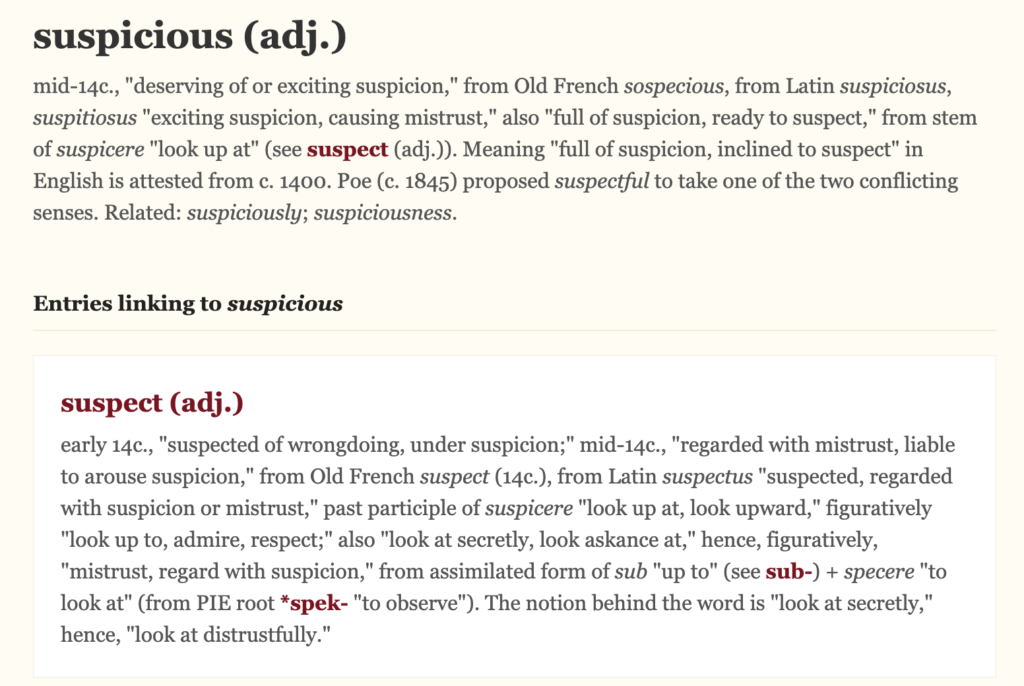
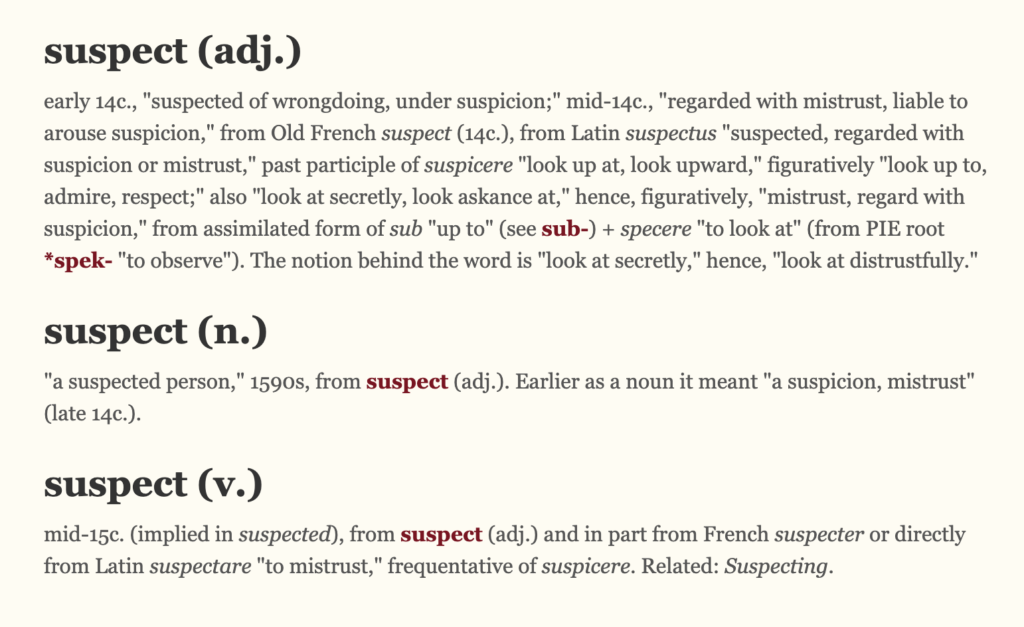
https://www.etymonline.com/word/suspect?ref=etymonline_crossreference#etymonline_v_22434
Suspicere = Sub (below) + Specere (look)
But here’s where it gets interesting. Note that in the right photo of Fig. 1, suspicere is broken down as sub (from below)+ specere (to look). Thus, no matter if you think sus comes from “suspect” or “suspicion” it’s formed by combining “sub” and “specere.”
Usually, concatenated words have a literal meaning which makes sense. My gut feeling was that sub + specere meant to look below, i.e. to check under the table for daggers that the suspicious person might be concealing. However, in the left photo of Fig. 2, it says:
“look up to, admire, respect;” also “look at secretly, look askance at,” hence, figuratively, mistrust, regard with suspicion,
Online Etymology Dictionary. (left photo of Fig. 2)
This feels like a jump. My best justification is that in Roman history the people who they were supposed to look up to, for example, corrupt politicians, would also be people that they would treat with suspicion. (Think Crassus’ morally dubious fire brigades) Or perhaps it echoes America’s pre-Walt Whitman disdain for fame, for example, I’m Nobody! Who are you? (260)‘s disdain for the “somebodies.”
L subspicere, usu eased to suspicere, to raise one’s head – sub, under, hence from under, in order to look at, hence to admire and, from the opp angle, to look at askance,
Origins: A Short Etymological Dictionary of Modern English, Page 648
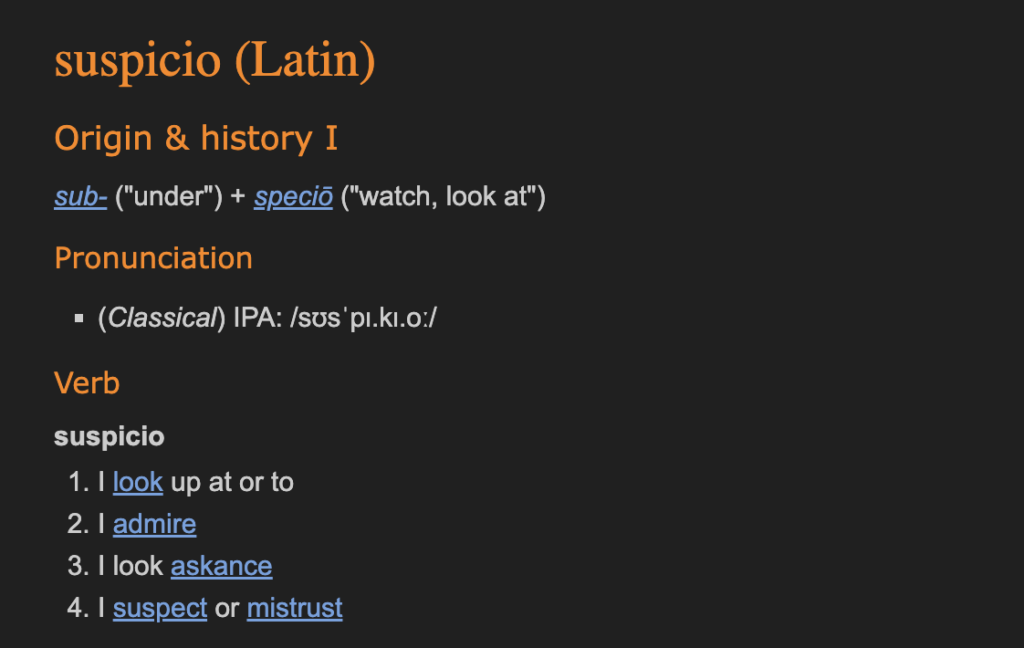
This progression is actually pretty informative, because “I admire” is positive, and “I look askance” = “to look at or think about someone or something with doubt, disapproval, or no trust” looks like something that would naturally happen to public figures.
After searching, I’m still not sure how admiration became mistrust. Latin is thousands of years old, and I’ll console myself by imaging someone thousands of years from now who’ll have just as hard of a time trying to find the etymology of “sus.”
My Final Judgement:
“The etymology is sus.”